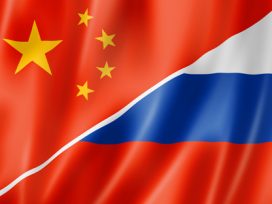Though homosexuality was decriminalized in Russia in 1993, an increasingly restrictive legal climate and widespread intolerance continue to hamper the lives of gay men and women. Nonetheless, LGBT networks continue to develop support systems of their own.
Articles
Read more than 6000 articles in 35 languages from over 90 cultural journals and associates.
In an unpublished, semi-autobiographical novel, Sergey Khazov draws on his experience of growing up gay in Russia. Extracts.
Doves are a symbol of peace, purity and fertility. They were once of practical use too: until science intervened, dove droppings were essential to the manufacture of fertiliser. So just how did they end up at the bottom of the urban symbolic order? Fahim Amir investigates.
Everyday advice on everyday love
Romantic expertise in mid-twentieth century Britain
Whilst there has been significant historiographical interest in the provision of modern sexual education, historians have paid less attention to the mechanisms through which emotional advice circulated and the ways in which it was received. Focusing on “everyday” forms of advice, Claire Langhamer studies relationships between agony aunts and their readers to map broader shifts in emotional authority.

Traditional libraries are increasingly putting their holdings online, if not in competition with Google Books then in partnership, in order to keep pace with the mass digitization of content. Yet it isn’t only the big institutional actors that are driving this process forward: small-scale, independent initiatives based on open source principles offer interesting approaches to re-defining the role and meaning of the library, writes Alessandro Ludovico.
As emerging markets command influence on the international stage, Saul Estrin and Kirsty Hughes look at the impact on economics, politics and human rights.

The future council
New forms of democratic participation
Decisions on large-scale infrastructure projects and sustainable energy development must draw on dialogue-based processes. “Future councils” can provide a basis for political identity through the expression of regional cohesion and clarify the implications that large infrastructure projects have at a local level.
No mean bookkeeping
An interview with the editor of "Kronos"
We should not think of “Kronos” as a testimony similar to Gombrowicz’s “Diary”, says Jerzy Jarzebski to “Kultura Liberalna”. While the “Diary” is his contribution to “European and world thought”, “Kronos” is an attempt to record an objective, sometimes very candid, truth.
A brutal auto-vivisection
Witold Gombrowicz's secret diary published in Poland
The recent publication of the private diary of Witold Gombrowicz provides unparalleled insight into the life of one of Poland’s great twentieth-century novelists and dramatists. But this is not literature. Instead: here he is, completely naked.
If Gombrowicz would have written these notes just for himself, to refresh his memory, he would have asked his wife to destroy the manuscript. On the contrary: he always wanted her to save “Kronos” from the fire. It was meant to survive, writes Pawel Majewski.

Power rotation, listening to the people, tolerance of dissent, recruitment of elites and experimentation: the truth is that, in all of these respects, China is more democratic than Russia. And China’s decision making is undoubtedly superior too, argues Ivan Krastev.

There's more than one road to the promised land
Russia might be more democratic but China is better governed
Comparing China and Russia in terms of their conformity to western liberal-democratic standards shows the inadequacy of such a general yardstick, writes Rein Müllerson in his response to Ivan Krastev. What really matters is rule of law and good governance.
In the midst of the Gezi Park protests, Ömer Faruk witnesses an unforeseen uprising without precedent under either Ottoman rule or the Turkish Republic. This, he argues, is the decentralized multitude rising up against multi-centred capital; and more comprehensive and effective revolts will likely follow.
Seeing reason
Jonathan Israel's radical vision
The thinkers of the Radical Enlightenment pursued ideas of equality and democracy to their logical conclusions, envisioning a systematic egalitarianism extending across all frontiers, class barriers and horizons. Jonathan Israel in conversation with Kenan Malik.
Leave identity-based politics behind and identity-based life aside and, instead, evolve towards pluralistic policies focused on the issues: this is the lesson that Nil Mutluer draws from an in-depth analysis of the role of laicité in Turkish society up to and around the Gezi Park protests.

Political change and the performing arts
The case of central and eastern Europe
When politics and the arts collide, “coded speech” invariably becomes the norm on stage and in books, newspapers and public discourse. Géza Kovács tries to unravel why it is that the arts in central and eastern Europe keep getting thrown into the whirlwind of historic change.